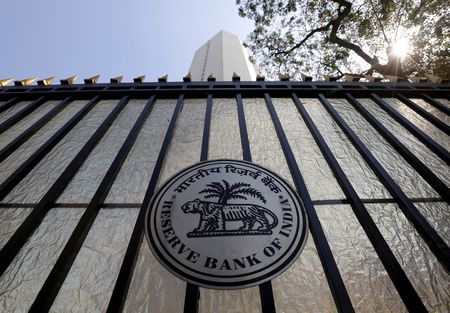By Dharamraj Dhutia
MUMBAI (Reuters) – Investors want the Indian federal government to sell more short-term and green bonds while resuming floating rate bond auctions, six bankers said on Tuesday.
The suggestions were made by market participants in a series of meetings about the government’s borrowing plan for the second half of the fiscal year.
The bankers requested anonymity as they are not authorised to speak to media. The central bank, which is the federal government’s debt manager, did not immediately reply to a Reuters email seeking comment.
Short term bonds are less risky and help banks manage their transient liquidity needs.
Floating rate bonds do not carry a fixed coupon, and their yield is calculated based on the 182-day treasury bill yield.
India had last issued floating rate notes in July 2022 but a lack of demand in a rising interest rate environment prompted the government to stop the sales.
The Reserve Bank of India raised interest rates by 250 basis points between May 2022 and February 2023 and has held them steady since.
The market expects rate cuts from the second half of the fiscal year that ends March 31.
“By the time the second half supply begins, we could be standing at the doorstep of a rate cut, so banks have suggested that the government can revert back to issuing high-yielding floating rate bonds,” one of the bankers aware of the discussion said.
Banks would like to enter new positions to “make handsome gains” as yields are set to decline, a senior trader at a primary dealership said.
Separately, long-term investors such as insurance companies and pension funds have sought a higher supply of longer papers, as they typically invest in these securities, the bankers said.
India aims to gross borrow 14.01 trillion rupees ($166.9 billion) in this fiscal year, of which 7.4 trillion rupees is likely to be borrowed by the end of this month.
($1 = 83.9550 Indian rupees)
(Reporting by Dharamraj Dhutia; Editing by Mrigank Dhaniwala)









